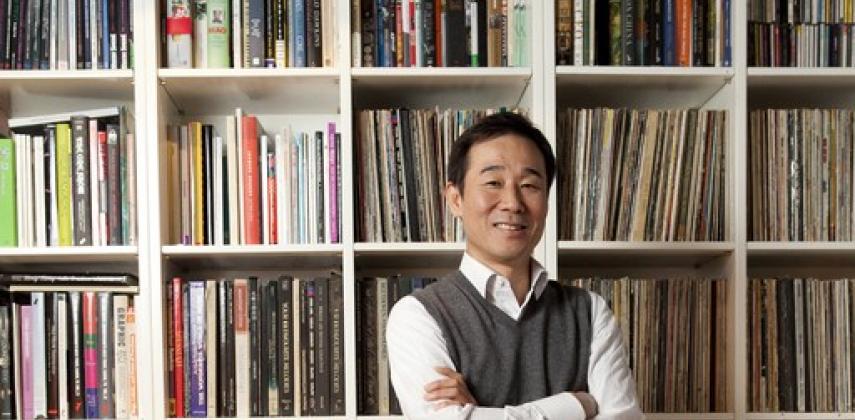Cheil COO Michael Kim needs people who can connect with consumers
Cheil Worldwide chief operating officer Michael Kim says digital technology – and the way it allows vast volumes of data about consumers and their preferences to be collected – has transformed the advertising industry. “In the past, we needed account managers, copywriters, art directors, creative directors, media planners and media buyers – that was it. But today we also have to have data analysts, technicians, production managers, and so on.
“While we used to produce a strategy based on just instinct and imagination, today we have so much data that we also need the capability to analyse that data and combine it with our insight. Everything is connected thanks to digital technology, and the number of customer touchpoints [where businesses come into contact with their customers] has increased significantly. All the applications on our mobile phones, for example, are customer touchpoints.”
The data these touchpoints produce about consumers’ activity and behaviour is a potential goldmine for a marketing communications business like Cheil. But mining this gold to find out what customers and potential customers really want isn’t easy. “Technology makes our business much more complex and our business model has to change with the fast-changing demands of consumers,” Kim says. “We now define digital technology and data analytics as our core competencies.”
Digital technology not only allows data to be vacuum-ed up and crunched, it also provides numerous new ways to get a message, informed by this analysis, out to consumers. “In the old days, you had a one-message-fits-all strategy,” Kim explains. “Today, you still have one strategy, but you have to execute it differently for different touchpoints, different media and different platforms. The way you communicate via Twitter is different to the way you communicate via Facebook.”
Kim is based at Cheil’s headquarters in Seoul, but he was recently in Hong Kong to mark the integration of three of the company’s business units: Cheil Hong Kong, Cheil OpenTide and Bravo Asia. While Cheil OpenTide handled digital campaigns and the managing of digital websites and platforms, Bravo Asia covered strategic consulting. Cheil Hong Kong focused on mass communication and events.
“If you maintain these as separate profit-and-loss centres then they will not talk to each other or collaborate,” Kim says. “In a world where we have to be increasingly nimble in order to provide optimised and timely solutions to our clients, we have to be integrated.”
Cheil has 42 offices in 35 countries, but the earnings figures for Cheil Greater China, which includes the Hong Kong operation, are significantly higher than those for other Cheil networks. The unit, which grew by around 30 per cent between 2012 and 2013, is quickly gaining on its parent operations in South Korea.
Cheil Greater China has three key hubs in Beijing, Shanghai and Hong Kong. The Hong Kong offices in Sheung Wan are responsible for Cheil’s business in southern China. From the three hubs, there are plans for additional localised “spokes” to be set up. In recent years, headcount at Cheil Greater China has grown by around 20 per cent per annum, keeping pace with the overall growth of the business.
Kim says there’s still a place with Cheil for those who are imaginative and perceptive. “If you are creative enough, you don’t have to have a diploma, but as each function gets more specialised, we need to find people with specific skill sets. To provide channel-optimised solutions for our clients, we have had to add many different functions.”
But finding people with the necessary expertise isn’t easy. “On a global basis, digital, technical and data analytical skills are in short supply,” Kim says. “It’s really hard to find the digital technologists, and the UX [user experience] and data analysis specialists.” He adds that marketing communication companies must also compete for these specialists with internet-based businesses such as Google and Amazon, which also depend on data analytics for their success.
Beyond the skill sets, Kim says Cheil’s success is built on recruiting people with the right personality and attitude. They need to be open to other people and cultures, curious by nature, and tenacious, with a strong team spirit.
The holy grail for Cheil is to find people who have a perfect combination of the art of storytelling and the science of data analytics. “I believe most of the players in this industry are aware of the new direction [it] is heading in,” Kim says. “But being aware and executing the necessary changes is very different.”
Although many companies are analysing the same or similar data, Kim believes Cheil offers its clients one-stop solutions as well as unique insights based on the company’s past experience. “I believe we have an advantage because we are a relatively small newcomer and we are better integrated,” he says.
He points out that Cheil’s long-term relationship with Samsung also gives the company access to data and insights that help it stand out from its competitors. “In Hong Kong and China, we manage most of the promotional staff Samsung has in its shops and they [through their direct contact with customers] send back market-sensing data to us,” he says.
THE RIGHT INGREDIENTS
Kim’s tips for making a winning ad campaign.
Imagination “The campaign must be based on original and creative ideas.”
Perception “These must come from a very clear understanding of the consumers we are talking to.”
Introduction “Innovative technology must be used to give the consumer new experiences.”
Optimisation “It needs to be co-ordinated across all media and digital platforms.”
Observation “The consumer response has to be constantly monitored and this response fed back into the campaign stories and experiences.”


